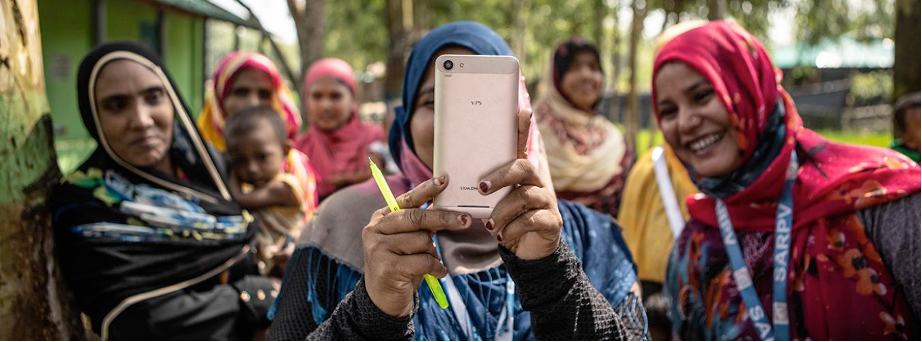
International Women’s Day: date, history and this year’s theme
Josie Kao, March 7, 2023, Reuters.
As the world gears up to celebrate International Women’s Day (IWD) on Wednesday, here is a look at what the global event stands for, this year’s theme and the issues that activists are focusing on.
IWD (International women’s day) is an annual event to celebrate the achievements of women and push for rights progress. It has roots in the U.S. socialist and labour movements of the early 20th century, particularly as women were fighting for better working conditions and the right to vote. The first recorded celebration was in 1911 in Austria, Denmark, Germany and Switzerland when over a million people rallied to support women’s rights. Since then, the event has grown not only in size but also in its scope. Focus has expanded to issues ranging from violence against women to parity in the workplace.
The U.N.’s theme this year is “DigitALL: Innovation and technology for gender equality.” The topic highlights how technology is crucial to advancing rights but a growing digital gender gap is impacting everything from women’s job opportunities to safety online.
According to the U.N., 259 million fewer women have access to the internet than men, and women are largely underrepresented in science, technology, engineering and mathematics careers. “Bringing women into technology results in more creative solutions and has greater potential for innovations that meet women’s needs and promote gender equality,” says the U.N.’s website. “Their lack of inclusion, by contrast, comes with massive costs.”
Listening to the spaces in between
S. Mona Sinha, Equality now, March 7
A message from the new global executive director of Equality now.
More than 100 years ago, French composer Claude Debussy wrote that ‘the music is not in the notes, but in the spaces between them.’
These beautiful words are still relevant today, and I am reminded of them often – whether it is during discussions with funders about climate solutions or while witnessing world leaders battling for attention on the global stage. We’re all so busy talking that no one is actually listening.
If we are to meet the UN’s Sustainable Development Goal of achieving gender equality and empowering all women and girls by 2030, it is those who live with the daily consequences of gender discrimination to whom we must first listen; and it is they who must determine the policies and legal frameworks we use to eradicate violence, to eliminate exploitation, and to end practices that inhibit the autonomy and agency of all women and gender minorities.
Listening can be a radical act because it involves learning to trust each other, and as we all know, wherever there is trust, there is risk. But I believe that it is a risk worth taking. Because to listen – to cultivate trust – is to redistribute power: and that is how we change the world.
With Stories of Her Oppressed Community, a Journalist Takes Aim at the Walls of Caste
Karan Deep Singh, March 6, 2023, NY Times.
Meena Kotwal started a news outlet focused on Dalit and other marginalized groups in India, hoping that telling their stories would help improve their lives. Even as members of marginalized groups have risen to become presidents of India (a largely ceremonial post), the country’s close to 300 million Dalits still face widespread mistreatment and violence. Despite decades of constitutionally enshrined protections and affirmative action, every year thousands are subjected to crimes, including rape, torture, acid attacks and murder.
To tell these stories and right these wrongs, Ms. Kotwal, a Dalit herself, started The Mooknayak — or “the leader of the voiceless.” It is named after a biweekly newspaper founded more than a century ago by Dr. Bhimrao Ambedkar, whom scholars have sometimes compared to Martin Luther King Jr. He helped draft the nation’s Constitution, which enshrined a formal ban on caste discrimination.
Protests break out in Iran over schoolgirl illnesses
Frances Kerry, March 4 2023, Reuters.
Worried parents protested in Iran’s capital Tehran and other cities on Saturday over a wave of suspected poison attacks that have affected schoolgirls in dozens of schools, according to Iranian news agencies and social media videos. The so-far unexplained illnesses have affected hundreds of schoolgirls in recent months. Iranian officials believe the girls may have been poisoned and have blamed Tehran’s enemies.
“It is one of the immediate priorities of Iran’s government to pursue this issue as quickly as possible and provide documented information to resolve the families’ concerns and to hold accountable the perpetrators and the causes,” Foreign Ministry spokesperson Nasser Kanaani told state media. Schoolgirls were active in the anti-government protests that began in September. They have removed their mandatory headscarves in classrooms, torn up pictures of Supreme Leader Ayatollah Ali Khamenei and called for his death.
Read the Blog Women: victims, fighters, and witness
Desaparecidos
About 30,000 people were “disappeared” in Argentina during the “dirty war”. They were thirty thousand individual human beings, each one with his/her own story, dreams and hopes, with friends, parents and children who love them, remember them and clamor for the truth and justice they deserve. Thirty thousand people to whom all Argentinians owe the minimal homage of memory.

